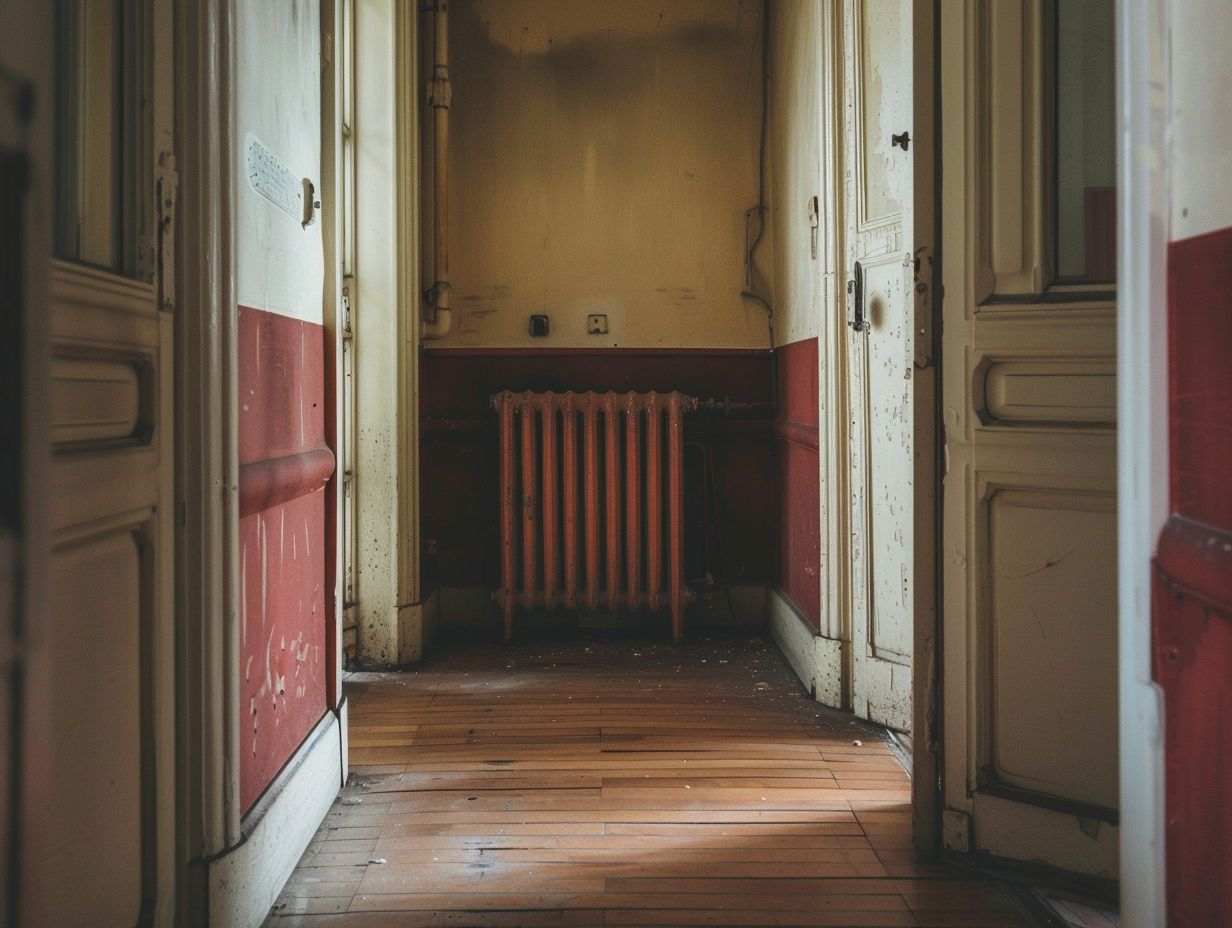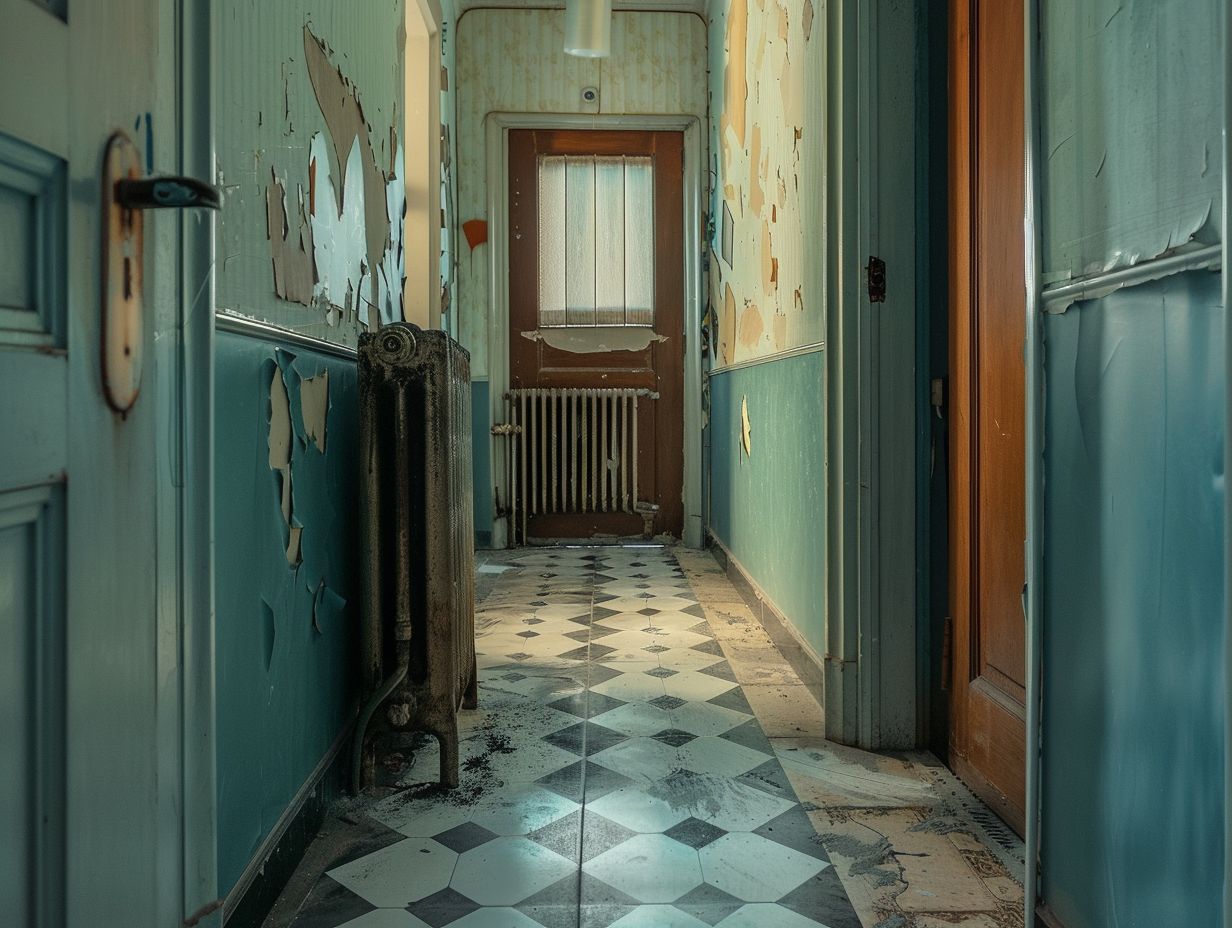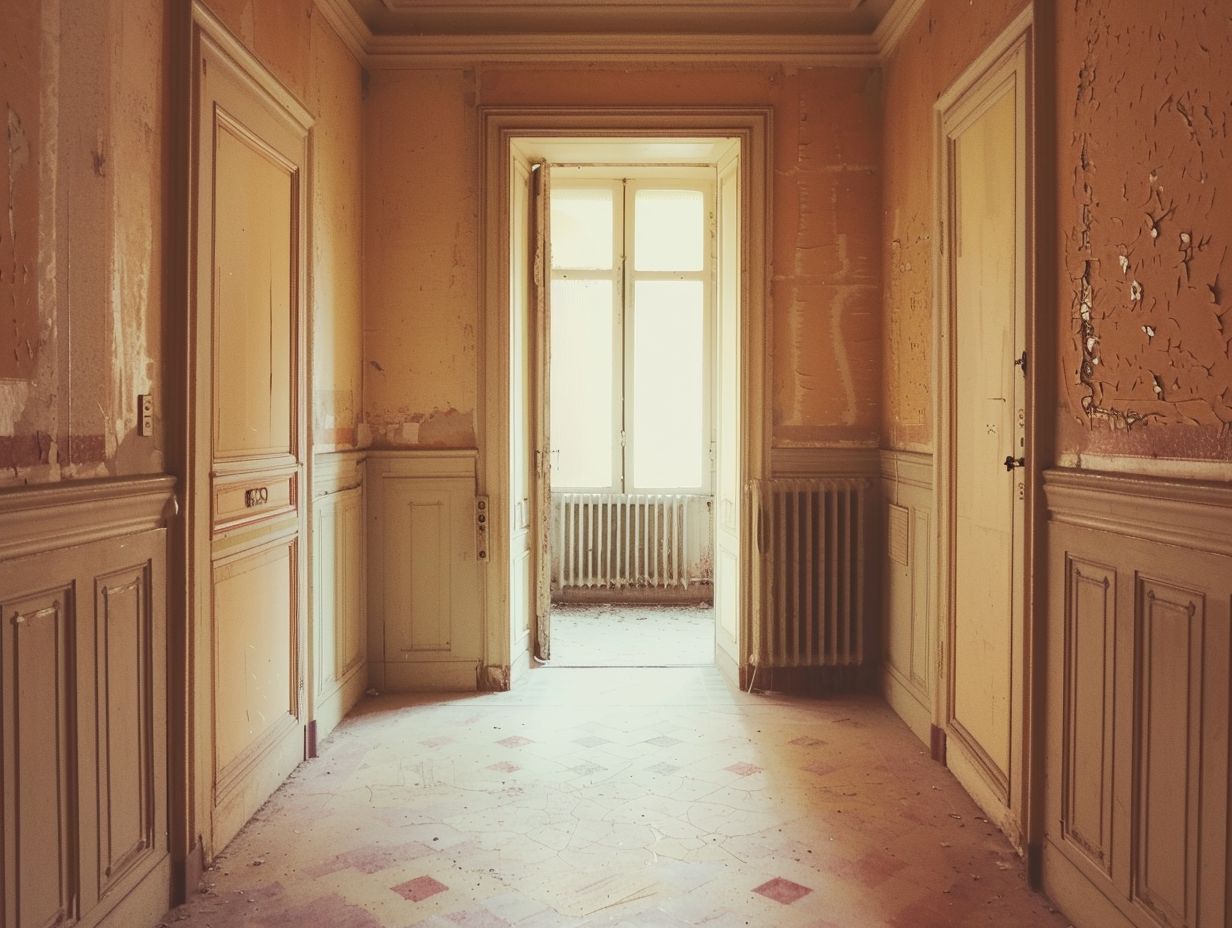Hallway radiators play a critical role in maintaining warmth and comfort in your home, especially during the colder months. When selecting the appropriate wattage for your hallway radiator, you may find the process overwhelming due to the various types and options on the market.
This discussion will cover the different types of hallway radiators, considerations for wattage selection, methods for calculating the suitable wattage, recommended wattage ranges, as well as installation and maintenance guidelines to maximise performance. Delve into a comprehensive understanding of hallway radiators.
Key Takeaways:

- Hallway radiators come in different types, such as panel, column, or designer radiators.
- The size and layout of your hallway, as well as insulation and heat loss, should be considered when determining wattage.
- Use the formula for wattage calculation to determine the appropriate wattage for your hallway radiator.
Factors to Consider for Wattage
When determining the wattage for your hallway radiator, factors like the size and layout of the hallway, along with insulation quality, play a crucial role in ensuring efficient heating.
The size of your hallway directly impacts the amount of heat needed to maintain a comfortable temperature. Larger hallways may require higher wattage radiators to effectively heat the space, while smaller hallways could suffice with lower wattage options.
The layout of your hallway, including any obstacles or corners that may impede heat distribution, must be taken into consideration when choosing the appropriate wattage. Proper insulation is key in retaining heat within the hallway, reducing energy waste and ensuring consistent warmth.
By optimising both insulation and wattage, you can enhance the overall heating efficiency of your hallway.
Size and Layout of the Hallway

When determining the appropriate wattage for your radiator, you should take into account the size and layout of the corridor. A larger corridor may necessitate a higher wattage to ensure consistent heating throughout the space. The dimensions of the corridor play a crucial role in how efficiently heat is dispersed.
In the case of a longer or wider corridor, inadequate wattage could lead to heat loss, especially in reaching all areas effectively. The corridor’s layout, including any alcoves or bends, can impact airflow and subsequently heat distribution.
For uniform heat distribution, it is advisable to select radiators with adjustable settings or multiple panels to accommodate different corridor sizes and shapes.
Insulation and Heat Loss
Effective insulation, including loft insulation and draught prevention, can significantly reduce heat loss in your corridor, ensuring that your radiators operate efficiently and maintain a comfortable temperature.
When insulation, such as loft insulation, is properly installed, it creates a barrier that prevents heat from escaping through the roof of your house. This not only helps in retaining the warmth generated by your heating system but also aids in maintaining a consistent and cosy environment indoors.
By minimising heat loss, insulation acts as a cost-effective solution to reduce energy consumption for heating. The insulation helps in keeping the heat within your living areas, allowing your heating system to work more effectively and thereby reducing energy costs in the long run.
Calculating the Appropriate Wattage
Calculating the appropriate wattage for your hallway radiator involves understanding the British Thermal Unit (BTU) requirements based on the desired temperature and hallway dimensions. To determine the BTU needed for efficient heating in your hallway, you first need to measure the length, width, and height of the space.
Once you have these measurements, you can use a simple formula to calculate the total BTU required. The relationship between wattage and BTU is crucial because one watt is equivalent to 3.412 BTU per hour.
This means that if you desire to maintain a specific temperature in your hallway, you can convert the BTU requirements into the adequate wattage needed for your radiator.
For example, if your hallway requires 10,000 BTUs to reach the desired temperature, you would need a radiator with approximately 2,930 watts to efficiently heat the space.
Formula for Wattage Calculation
When calculating the wattage needed for a hallway, you must take into account various factors such as hallway size, insulation quality, and heating requirements to determine the ideal heating output for the radiator.
To determine the required wattage for a hallway, start by measuring the length and width of the space to calculate the square footage. Additionally, consider the insulation quality of the hallway as it plays a significant role in heat retention.
Typically, well-insulated hallways necessitate around 10 watts per square foot, whereas less-insulated areas may require 15 watts per square foot. For instance, an insulated hallway measuring 10’x5′ would need 50 watts (10’x5′ = 50 sq ft x 10 watts). It is essential to match the heating requirements with the calculated wattage to ensure effective and adequate warmth.
Choosing the Right Wattage for Your Hallway Radiator

Selecting the appropriate wattage for your hallway radiator is crucial to ensure consistent warmth and comfort. Recommended wattage ranges can serve as a helpful guide in making the right choice. When determining the wattage for your hallway, consider the size of the space.
For smaller hallways, a wattage range of 100-200 watts may be sufficient, while larger hallways might require 200-400 watts. It’s important to strike a balance between warmth and energy efficiency.
Opting for a radiator with adjustable output levels can offer flexibility depending on the season or specific heating needs. Modern radiators come with advanced features like smart thermostats that can help regulate temperature and optimise energy usage.
Recommended Wattage Ranges
When considering hallway radiators, the recommended wattage ranges are tailored to meet the specific heating needs of the space efficiently.
For smaller hallways, typically up to 50 square feet, radiators with wattage ranging from 500 to 1000 watts are usually adequate. These lower wattage options are well-suited for compact spaces with modest heat dispersion requirements.
On the other hand, larger hallways exceeding 50 square feet may benefit from higher wattage ratings between 1500 and 2500 watts, especially when taking into account factors like insulation levels and window sizes that can impact heat retention.
Recent advancements in heating technology have resulted in more energy-efficient radiators that can provide optimal warmth using lower wattages, offering cost-effective and eco-friendly heating solutions for residential and commercial spaces.
Installation and Maintenance Tips
To maximise the heating efficiency and longevity of your hallway radiators, it is essential to focus on proper installation and maintenance. By ensuring correct placement and regular upkeep, you can optimise the performance of your heating system.
In terms of proper installation, positioning the radiator centrally along the hallway wall is crucial for efficient heat distribution.
Regularly bleeding the radiators to release trapped air is important to maintain consistent warmth throughout the space. Scheduling annual professional inspections is recommended as it can help detect any potential issues early on, ultimately preventing costly repairs in the future.
By staying proactive with maintenance tasks and seeking professional assistance when necessary, you can guarantee that your hallway radiators function at their highest capacity, providing a cosy and comfortable environment in your home.
Proper Placement and Maintenance of Hallway Radiators
Heating experts recommend that strategic placement and consistent maintenance practices be implemented for hallway radiators to ensure optimal functioning of the heating system and continuous warmth throughout the space.
Positioning radiators along the longest exterior wall of the hallway can maximise heat distribution, effectively warming the entire area. Ensuring that radiators are not obstructed by furniture or curtains allows for efficient heat circulation.
Heating professionals play a crucial role in assessing the heating needs of a space and recommending the appropriate radiator size and placement. Regular maintenance, such as bleeding radiators to remove trapped air and checking for leaks, is essential to prolong the lifespan of the heating system.
Frequently Asked Questions

What Wattage for Hallway Radiator?
The recommended wattage for a hallway radiator depends on several factors, including the size of the hallway and the climate in your area. Generally, a 1,000 watt radiator is suitable for a standard-sized hallway in moderate climates.
How do I calculate the wattage needed for my hallway radiator?
To calculate the wattage needed for your hallway radiator, you will need to measure the length, width, and height of the hallway in feet. Then, multiply these numbers together to get the cubic footage. Multiply the cubic footage by 10 if you live in a moderate climate or 20 if you live in a colder climate. This will give you the recommended wattage for your radiator.
Can I use a higher wattage radiator in my hallway?
It is generally not recommended to use a higher wattage radiator than what is recommended for your hallway. This can lead to overheating and higher energy costs. It is best to choose a radiator with the appropriate wattage for your space.
What if I live in a warmer climate, do I still need a hallway radiator?
Even if you live in a warmer climate, it is still important to have a hallway radiator. While it may not be used as frequently as in colder climates, it can still help to maintain a comfortable temperature in your hallway during cooler months or on chilly evenings.
Can I use a lower wattage radiator in my hallway?
It is not recommended to use a lower wattage radiator than what is recommended for your hallway. This could result in insufficient heating and discomfort in your hallway. It is best to choose a radiator with the appropriate wattage for your space.
What other factors should I consider when choosing a hallway radiator wattage?
In addition to the size of your hallway and climate, you should also consider the insulation of your home and the placement of the radiator. If your home has poor insulation or the radiator is located near a drafty area, you may want to choose a higher wattage to compensate for heat loss.

